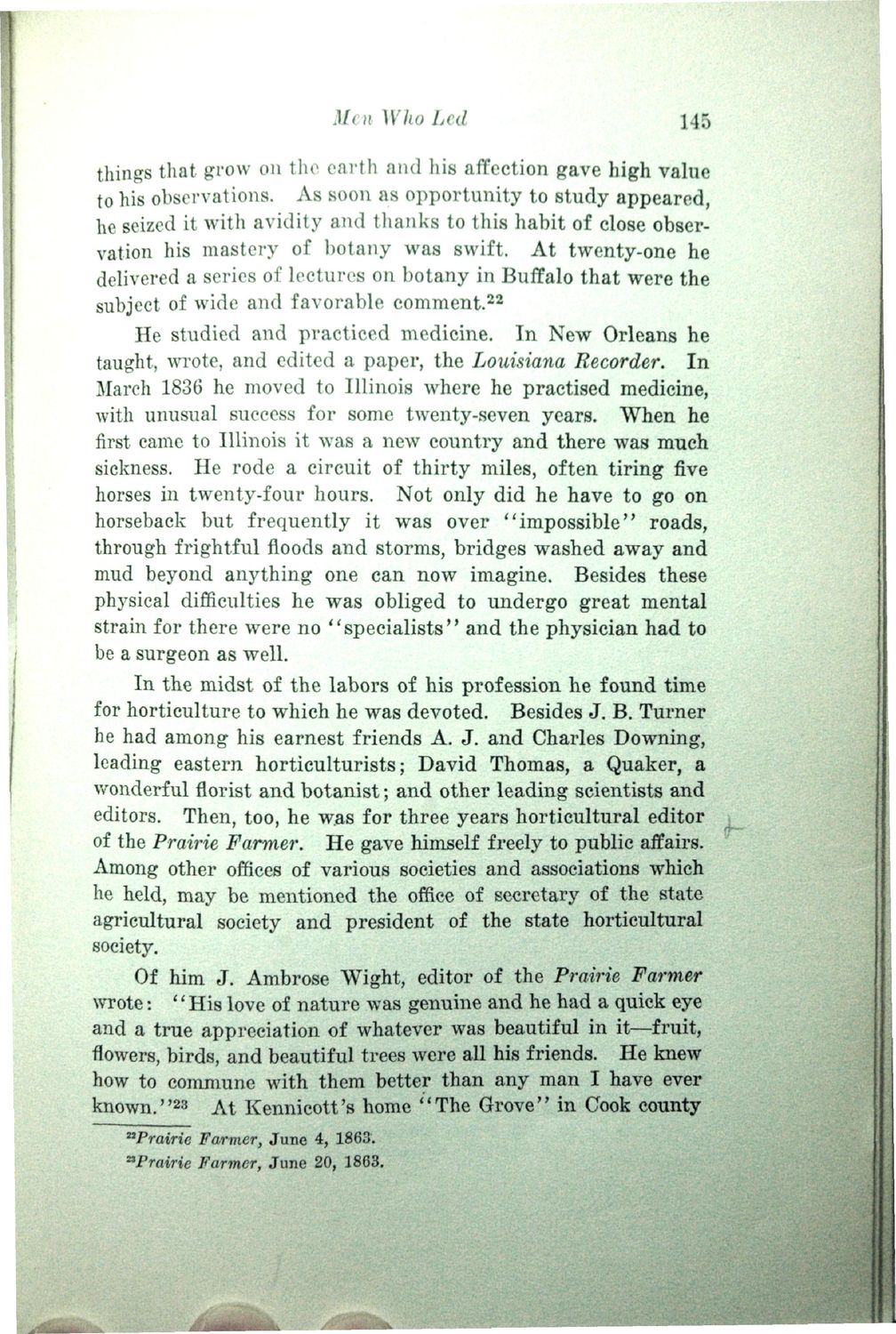| |
| |
Caption: Book - History of the University (Powell)
This is a reduced-resolution page image for fast online browsing.

EXTRACTED TEXT FROM PAGE:
Men Who Led 145 things that grow on the earth and his affection gave high value to his observations. As soon as opportunity to study appeared, he seized it with avidity and thanks to this habit of close observation his mastery of botany was swift. At twenty-one he delivered a series of lectures on botany in Buffalo that were the subject of wide and favorable comment.22 He studied and practiced medicine. In New Orleans he taught, wrote, and edited a paper, the Louisiana Recorder. In March 1836 he moved to Illinois where he practised medicine, with unusual success for some twenty-seven years. When he first came to Illinois it was a new country and there was much sickness. He rode a circuit of thirty miles, often tiring five horses in twenty-four hours. Not only did he have to go on horseback but frequently it was over "impossible" roads, through frightful floods and storms, bridges washed away and mud beyond anything one can now imagine. Besides these physical difficulties he was obliged to undergo great mental strain for there were no "specialists" and the physician had to be a surgeon as well. In the midst of the labors of his profession he found time for horticulture to which he was devoted. Besides J. B. Turner he had among his earnest friends A. J. and Charles Downing, leading eastern horticulturists; David Thomas, a Quaker, a wonderful florist and botanist; and other leading scientists and editors. Then, too, he was for three years horticultural editor of the Prairie Farmer. He gave himself freely to public affairs. Among other offices of various societies and associations which he held, may be mentioned the office of secretary of the state agricultural society and president of the state horticultural society. Of him J. Ambrose Wight, editor of the Prairie Farmer wrote: "His love of nature was genuine and he had a quick eye and a true appreciation of whatever was beautiful in it—fruit, flowers, birds, and beautiful trees were all his friends. He knew how to commune with them better than any man I have ever known."28 At Kennicott's home "The Grove" in Cook county ^Prairie Farmer, June 4, 186& ^Prairie Farmer, June 20, 1863.
| |